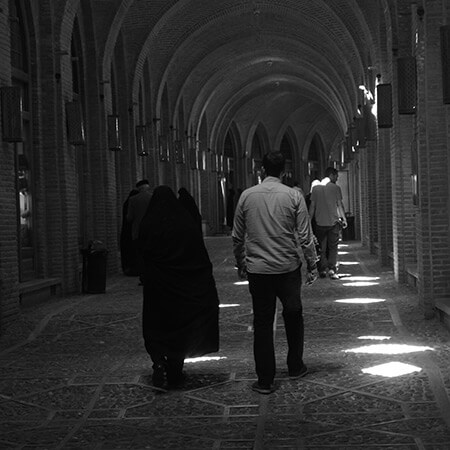بازار قزوین

مجموعه بازار قزوین با معماری جالب و قدیمی خود، یکی از مکانهای دیدنی شهر قزوین است. سابقه بازار در قزوین به یکهزار سال میرسد و با گذشت زمان این بازار تا دوره صفوی رشد میکند. در این دوره با انتخاب قزوین بهعنوان پایتخت ایران و پس از آن با احداث طرحهای قابل توجهی در دوره قاجار در همجواری بازار به علت قرار گرفتن شهر قزوین در محور ارتباطی پایتخت به غرب و شمال ایران ارزش فوقالعادهای بهآن داده میشود. اما مجموعه بازار کنونی به دوره صفویه نسبت داده میشود و قسمت اعظم بناهای کنونی آن در دوران قاجار ساخته شده است.
به نقل از خبرگزاری جمهوری اسلامی ایران، «معماری بازار قزوین در زمان صفوی شکل گرفته و معماری بازارهای اصفهان، شیراز نیز به همان دوره برمیگردد، این بازار در طول ۹ قرن یک جابجایی از جنوب به شمال داشته بطوری که در این جابجایی مسجد جامع کاملاً از بافت بازار جدا شدهاست و هماکنون ارتباطی بین بازار و مسجد جامع مشاهده نمیشود.»
در دوره صفویه محیط بازارها وسعت یافتهاند و هر بازار به صنفی خاص تعلق داشته است. بازار قیصریه قزوین با تاقهای آجری و ارتفاع بسیار زیاد، بخشها یی از بازار قزوین است که دارای چهار دروازه بوده و هنوز آثار به جای مانده است.
گالری







